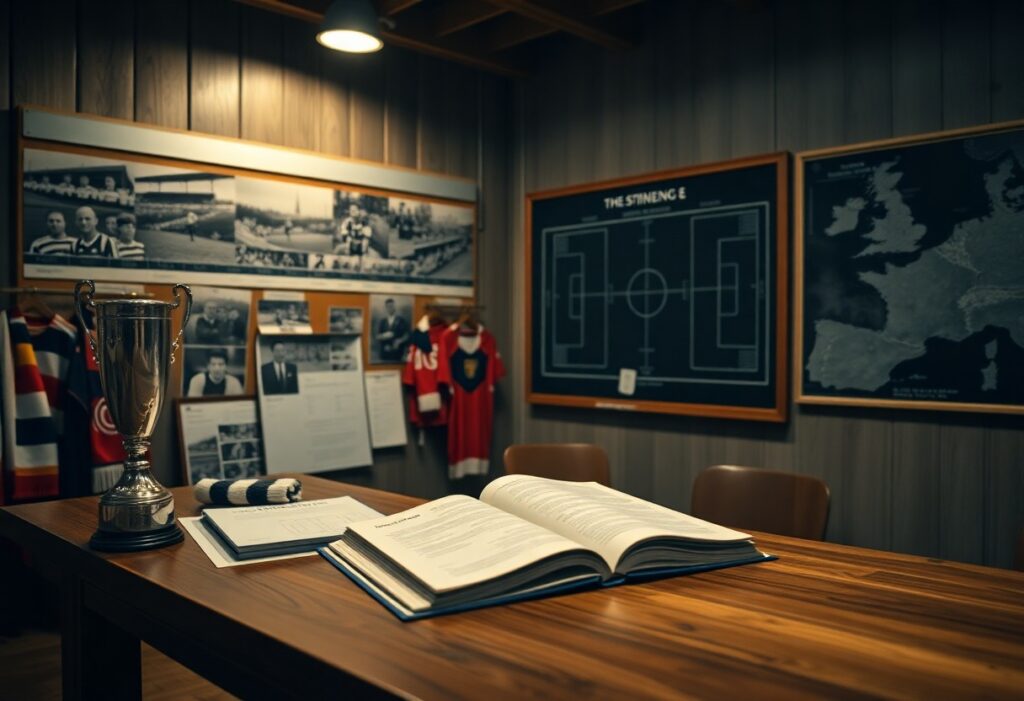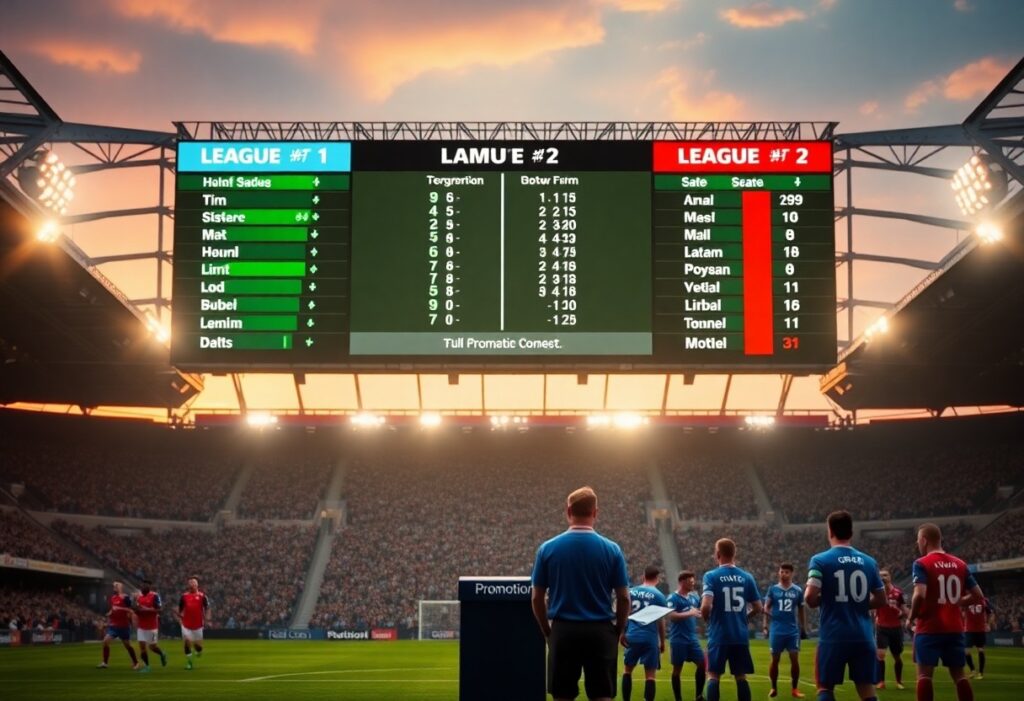
Most football clubs have experienced defining moments that completely altered their trajectory and shaped their identity for generations to come. When you examine the history of the world’s greatest teams, you’ll discover that single matches often serve as turning points that either catapult clubs to unprecedented heights or plunge them into periods of decline. These pivotal encounters go beyond mere victories or defeats – they represent transformative events that redefine a club’s culture, ambitions, and place in football history. Understanding these watershed moments helps you appreciate how one ninety-minute period can fundamentally change everything a football club represents.
Game-Changing Moments That Reshaped Teams
You’ll find that certain matches transcend mere wins and losses, becoming pivotal moments that fundamentally alter a club’s trajectory. These encounters reshape team philosophies, influence transfer strategies, and create psychological shifts that ripple through generations of players and supporters. When examining football history, you can trace how single games have transformed modest clubs into powerhouses while simultaneously humbling established giants, proving that 90 minutes can redefine decades of tradition.
The Historic Upset: When Underdogs Stunned the Giants
Leicester City’s 2015-16 Premier League triumph stands as football’s greatest underdog story, but you should consider Denmark’s Euro 1992 victory as equally transformative. The Danes entered as last-minute replacements for Yugoslavia and conquered Europe, fundamentally changing how smaller nations approach international tournaments. Similarly, Montpellier’s 2012 Ligue 1 title over PSG’s financial might demonstrated that tactical discipline and team chemistry could still overcome unlimited resources, inspiring clubs across Europe to prioritize squad harmony over star signings.
Dramatic Comebacks: How Last-Minute Goals Forged New Identities
Manchester United’s 1999 Champions League final against Bayern Munich exemplifies how two injury-time goals can reshape a club’s entire philosophy. Those dramatic strikes from Teddy Sheringham and Ole Gunnar Solskjær didn’t just secure the treble; they embedded the “never give up” mentality that became synonymous with Ferguson’s United. The psychological impact transformed United into a team that thrived under pressure, with opponents fearing late collapses for the next decade.
Barcelona’s 6-1 comeback against PSG in 2017 represents another seismic shift in club identity. After trailing 4-0 from the first leg, you witnessed Barça produce the most remarkable Champions League turnaround in history, with Neymar orchestrating the final moments through a free-kick and penalty before setting up Sergi Roberto’s winner. This match redefined Barcelona’s approach to European competition, proving their commitment to attacking football could overcome seemingly impossible deficits. The psychological boost carried forward, influencing their transfer strategy and tactical approach, while simultaneously planting seeds of doubt in PSG’s European ambitions that persist today.
Turning Points in Club Histories
You’ll find that certain matches serve as clear demarcation lines in football history, separating what clubs were from what they became. Manchester City’s 8-1 demolition of Middlesbrough in May 2008 didn’t just secure Premier League survival—it marked the final chapter of their pre-takeover era before Sheikh Mansour’s arrival transformed them into title contenders. Similarly, Leicester City’s 2-1 victory over Seville in March 2017 represented more than Champions League progression; it validated their Premier League triumph wasn’t a fluke and established them as a club capable of competing at Europe’s highest level.
Matches That Defined Rivalries and Altered Legacies
You can trace the intensity of modern football rivalries back to specific flashpoint matches that redefined relationships between clubs. Arsenal’s 2-0 victory over Manchester United at Highbury in 2002, featuring Patrick Vieira and Roy Keane’s tunnel confrontation, escalated their rivalry beyond sporting competition into personal animosity that shaped both clubs’ identities for years. Barcelona’s 5-0 El Clásico victory in November 2010 didn’t just humiliate Real Madrid—it established Pep Guardiola’s philosophy as the gold standard and forced Madrid to completely restructure their approach to competing with their eternal rivals.
Tactical Shifts Sparked by Pivotal Games
You witness how single matches can revolutionize entire tactical philosophies when examining Barcelona’s 4-0 Champions League victory over AC Milan in 1994. Johan Cruyff’s deployment of the false nine formation didn’t just secure victory—it introduced a tactical concept that would later define Barcelona’s golden era under Guardiola. Liverpool’s 4-3 victory over Newcastle in 1996 showcased how high-intensity pressing could overcome tactical discipline, influencing Jürgen Klopp’s eventual appointment and tactical approach decades later.
The ripple effects of these tactical revelations extend far beyond individual clubs, reshaping football’s strategic landscape. Chelsea’s 1-0 victory over Liverpool in the 2005 Champions League semi-final demonstrated José Mourinho’s defensive masterclass, proving that organized, compact defending could neutralize even the most dynamic attacking systems. This approach influenced an entire generation of coaches who prioritized defensive solidity over expansive play. Arsenal’s 2-1 victory over Real Madrid in 2006 showed how Arsène Wenger’s emphasis on technical precision and youth development could compete with galáctico-style recruitment, validating the academy-focused model that many clubs subsequently adopted. You can observe how these tactical innovations, born from specific match situations, eventually became fundamental principles that clubs built their entire philosophies around, transforming not just individual teams but the sport’s tactical evolution.
Iconic Matches That Became Cultural Touchstones
Beyond trophies and titles, certain matches transcend sport to become defining moments in cultural history. Manchester United’s 1999 Champions League final comeback against Bayern Munich didn’t just secure a treble – it created a narrative of never giving up that became synonymous with the club’s identity. Similarly, Leicester City’s entire 2015-16 Premier League campaign transformed from impossible dream to global phenomenon, with each match building a legacy that redefined what you could expect from football’s underdog stories.
Memorable Finals That Elevated Club Statuses
Liverpool’s 2005 Champions League final in Istanbul exemplifies how a single match can rewrite a club’s modern identity. Trailing AC Milan 3-0 at halftime, Liverpool’s miraculous comeback didn’t just win them their fifth European Cup – it established them as comeback kings and elevated their global profile exponentially. The “Miracle of Istanbul” became Liverpool’s calling card, attracting players who wanted to be part of that never-say-die culture and transforming the club’s commercial appeal worldwide.
Legendary Performances That Became Part of Club Lore
Barcelona’s 6-1 victory over PSG in 2017 created the “Remontada” legend that became central to the club’s modern mythology. After losing 4-0 in Paris, Barca’s impossible comeback at Camp Nou didn’t just advance them in the Champions League – it reinforced their identity as masters of beautiful, attacking football capable of achieving the impossible.
Individual brilliance often defines these legendary performances more than collective achievements. Lionel Messi’s four goals against Arsenal in 2010 announced his arrival as football’s new king while simultaneously establishing Barcelona’s dominance over English football. Diego Maradona’s single-handed destruction of England in 1986, featuring both the “Hand of God” and the “Goal of the Century,” didn’t just win Argentina the World Cup – it created a mythology around both player and nation that persists today. These performances become shorthand for club identity, referenced in marketing campaigns, chanted by supporters, and used to attract new generations of fans who want to witness similar magic.
The Long-Term Impact on Player Careers
You’ll find that legendary matches don’t just transform clubs—they fundamentally reshape the careers of the players who participate in them. Single performances can elevate journeymen into club icons, while others see their entire professional trajectory altered by one pivotal moment. These career-defining matches create lasting legacies that extend far beyond the final whistle, influencing transfer values, sponsorship deals, and how supporters view players for decades to come.
How Individual Performances in Key Matches Transformed Lives
Extraordinary performances in high-stakes matches have the power to completely redefine a player’s career trajectory. Gareth Bale’s hat-trick in the 2018 Champions League final transformed him from a frequently criticized signing into a Real Madrid legend, while Mario Götze’s World Cup final goal elevated him to global stardom overnight. You can trace similar transformations across football history, where players seized their moment on the biggest stage and never looked back.
Players Who Became Club Legends Due to Single Matches
Certain players achieved immortality at their clubs through one unforgettable performance. Sergio Agüero’s title-winning goal against QPR in 2012 instantly made him a Manchester City icon, while Steven Gerrard’s Istanbul heroics cemented his Liverpool legacy forever. These moments transcend statistics and create emotional bonds between players and supporters that last generations.
The phenomenon of single-match legends reveals football’s unique ability to create instant mythology. Agüero’s “93:20” moment didn’t just win Manchester City their first Premier League title in 44 years—it fundamentally changed how the club viewed itself and how the football world perceived them. Similarly, when Ole Gunnar Solskjær scored that injury-time winner in the 1999 Champions League final, he transformed from a super-sub into “the baby-faced assassin” whose name would forever be synonymous with Manchester United’s greatest triumph. You’ll notice these players often become more valuable to their clubs than their pure footballing ability might suggest, because they represent pivotal moments in institutional history that can never be replicated or forgotten.
Lessons Learned: Tactical Innovations Born from Defeat
You’ll find that football’s greatest tactical revolutions often emerge from the ashes of humiliating defeats. Barcelona’s 8-2 thrashing by Bayern Munich in 2020 forced a complete rethink of their possession-based philosophy, while Brazil’s 7-1 World Cup semifinal loss to Germany in 2014 sparked nationwide changes in youth development and tactical preparation. These catastrophic results become catalysts for innovation, pushing clubs and nations to abandon outdated systems and embrace new methodologies that seemed impossible before their world came crashing down.
Clubs That Reinvented Themselves After Disastrous Losses
Liverpool’s transformation following their 6-1 aggregate defeat to Stoke City in 2015 under Brendan Rodgers exemplifies complete organizational overhaul. You can trace their Champions League triumph in 2019 directly to the systematic changes implemented after that embarrassment – from Klopp’s appointment to revolutionary fitness protocols and pressing systems. AC Milan’s decline after their 4-0 loss to Arsenal in 2012 similarly triggered a decade-long rebuilding process that fundamentally altered their scouting network, youth academy structure, and tactical identity from defensive solidity to attacking fluidity.
Coaching Philosophy Changes Driven by Match Outcomes
Pep Guardiola’s evolution from Barcelona’s tiki-taka purist to Manchester City’s tactical chameleon stems directly from specific Champions League defeats that exposed his system’s vulnerabilities. You can pinpoint exact matches where his philosophy shifted – the 2012 Chelsea semifinal loss led to increased physicality focus, while Bayern Munich’s 2014 Real Madrid defeat introduced more direct attacking options into his previously possession-obsessed approach.
Your understanding of modern football tactics becomes clearer when you examine how José Mourinho’s defensive masterclasses against Barcelona in 2010 forced countless coaches worldwide to rethink their approach to high-pressing teams. His Inter Milan’s Champions League semifinal victory didn’t just eliminate the favorites – it created a tactical template that influenced everyone from Atletico Madrid’s Diego Simeone to Leicester City’s title-winning campaign under Claudio Ranieri. Jürgen Klopp’s heavy metal football at Borussia Dortmund emerged specifically as a response to Bayern Munich’s technical superiority, proving that tactical innovation often requires embracing your limitations rather than copying your superiors. These philosophical shifts ripple through football’s ecosystem, with lower-league clubs adopting modified versions of tactics born from elite-level defeats, creating tactical evolution that spans multiple divisions and continents.
Summing up
Now you understand how pivotal football matches can reshape entire club histories and define institutional identity for generations. These defining moments demonstrate that single games possess the power to elevate organizations from obscurity to greatness or transform established powerhouses into legends. When you examine these transformative encounters, you witness how tactical decisions, individual brilliance, and collective determination converge to create lasting change. Your appreciation for football’s capacity to alter destinies grows as you recognize that these matches transcend mere sporting events, becoming cultural touchstones that influence club philosophy, fan loyalty, and competitive standing for decades to come.



